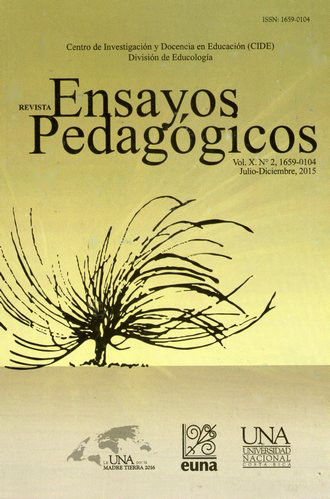Language Teaching Methods: There is Nothing New Under the Sun, or Is There?
DOI:
https://doi.org/10.15359/rep.10-2.3.engKeywords:
languages, teaching, methods, pedagogy, postmethod condition, futureAbstract
This essay intends to problematize the possible direction that the field of language teaching will follow in the XXI century. For this purpose, nine methodological parameters for conceptualizing every language teaching method will be described, the impossibility of designating the best method will be considered, the concept of the post method condition and its ten macro strategies for language teaching will be discussed along with the challenges for its implementation, a minimalist proposal for language teaching will be referred to, and the current phenomenon of textbook-defined practice will be analyzed.
References
Akbari, R. (2008). Postmethod discourse and practice. TESOL Quarterly, 42(4), 641-652.
Celce-Murcia, M. (2007). Rethinking the role of communicative competence in language teaching. In E. Alcón & M. P. Safont (Eds.), Intercultural Language Use and Language Learning (pp. 41-57). Dordrecht: Springer.
Hall, G. (2011). Exploring English language teaching: Language in action. New York: Routledge.
Hashemi, S. (2011). (Post)-Methodism: Possibility of the impossible? Journal of Language Teaching and Research, 2(1), 137-145. doi:10.4304/jltr.2.1.137-145
Kamali, J. (2014). Postmethod survival. Procedia—Social and Behavioral Sciences, 98, 824-829.
Khatib, M., & Fathi, J. (2014). The investigation of the perspective of Iranian EFL domain experts on post-method pedagogy: A delphi technique. The Journal of Teaching Language Skills, 6(3), 101-124.
Khatib, M., & Fat’hi, J. (2012). Postmethod pedagogy and ELT teachers. Journal of Academic and Applied Studies, 2(2), 22-29.
Kumaravadivelu, B. (2008). Understanding Language Teaching: From Method to Postmethod. New Jersey: Lawrence Erlbaum Associates.
Kumaravadivelu, B. (2006). TESOL methods: Changing tracks, challenging trends. TESOL Quarterly, 40(1), 59-81.
Kumaravadivelu, B. (2003). Beyond methods: Macrostrategies for language teaching. New Haven: Yale University Press.
Kumaravadivelu, B. (1994). The post method condition: (E)merging strategies for second/foreign language teaching. TESOL Quarterly, 28(1), 27-48.
McMorrow, M. (2007). Teacher education in the postmethods era. ELT Journal, 61 (4), 375-377.
Prabhu, N. S. (1990). There is no best method—Why? TESOL Quarterly, 24(2), 161-176.
Richards, J. C. (2001). Beyond methods. In C. N. Candlin & N. Mercer (Eds.), English language teaching in its social context: A reader (pp. 167- 179). New York: Routlege.
Richards, J. C., & Rodgers, T. (2004). Approaches and methods in language teaching (2nd Ed.). New York: Cambridge University Press.
Thornbury, S. (2010). The secret history of methods. Retrieved from https://www.youtube.com/watch?v=L2q9B2BEV2U
Thorrnbury, S. (2005). Dogme: Dancing in the dark. Folio 9(2), 3-5.
Thorbury, S. (2000). A dogma for EFL. IATEFL Issues, 153, 2.
Downloads
Published
How to Cite
Issue
Section
License
Ensayos Pedagógicos is subscribed to the Attribution-NonCommertial-NoDerivatives 4.0 International Creative Commons Licence, which allows both authors and readers to freely download, store, copy, and distribute the final approved publisehd version of the manuscript (post-print) as long as this is done without commercial purposes, no derivative works are generated, and the source and author are mentioned. As well, Ensayos Pedagógicos declares that authors will remain the rightful owners of the copyrights of their work in perpetuity.







